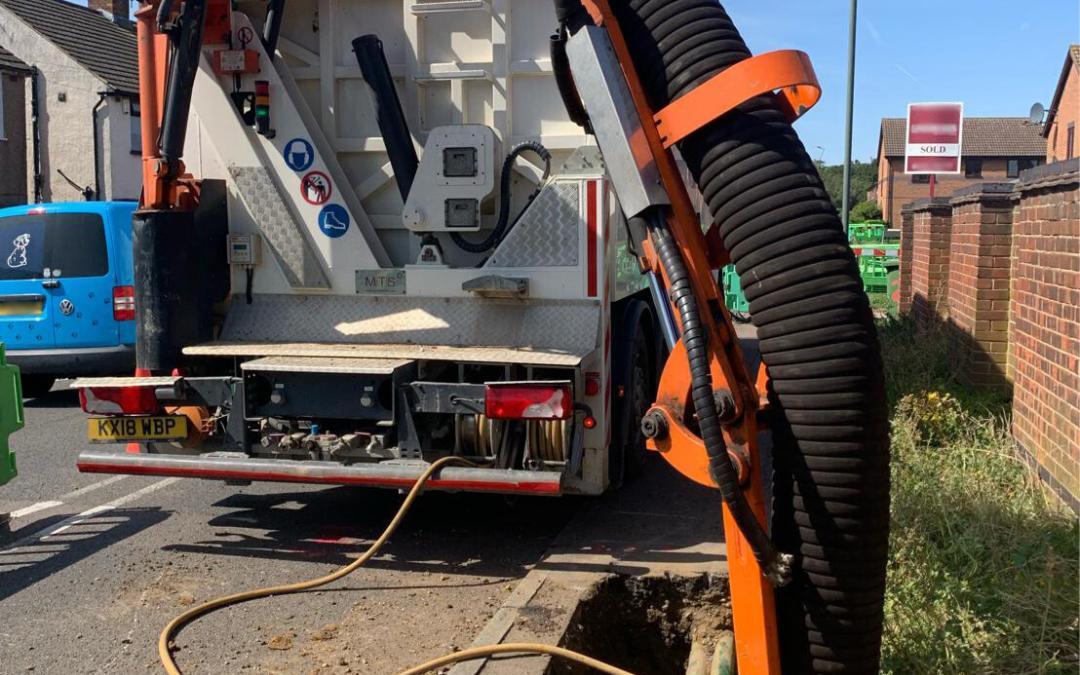When planning residential and commercial projects, there is much to consider, and choosing the correct excavation equipment is vital to the success of the job.
What are the different types of excavation projects?
- Earth Excavation – The process of removing the earth to form a cavity within the ground.
- Trench Excavation – This job is carried out principally to allow an installation or repair of utilities, drains, and sewers to serve the populated areas.
- Drainage Excavation – The process of excavating a hole or trench next to the drainage pipes to allow for repair, maintenance, installation, or replacement.
- Rock Excavation – The removal of material that cannot be excavated without using special methods, such as drilling or the use of explosives.
What machinery is used in construction or building projects?
These are just some of the most commonly used large heavy equipment in the UK today:
- Vacuum Excavators.
- Tractors and Power Shovels.
- Bull and Angle Dozers.
- Scrapers.
- Draglines.
- Clamshells.
- Motor Graders.
- Rippers.
- Dredgers.
The availability of heavy construction equipment is dependent on the construction or building project and ground conditions, so it is important to note that some machines aren’t suitable for particular jobs
How to choose the right excavation equipment and what to consider
With the vast amount of large construction equipment to choose from, when thinking about your choice of machine for an upcoming project, it is important to weigh up the advantages and disadvantages of each piece.
Suction Excavators are a versatile piece of equipment and are used on a daily basis by the Safe Excavation operators for jobs that entail digging a trench, removal of trees and debris, utility modifications, landscaping, and much more.
So, what do you need to consider?
- Your site: No matter the size of the on-site area, powerful machinery and equipment can be beneficial to both small and large excavation projects.
- Your project: Is it going to be a one-day task or do you need to hire equipment for a longer period length? Would your project consist of different phases? What is required for digging, lifting, and carrying may be different from the tools that you need to dredge or to avoid obstacles.
- The operator: You should never forget the person who will excavate and carry out their role. If the person seems to be uncomfortable or does not have the correct tools, the job won’t finish in a satisfactory manner. Ensure that the seats provide flexibility and that the controls are easy to use. Better performance and results will happen when these simple aspects are set in place.
Vacuum Excavators are six times more productive than the outdated manual method, even where pipes and cables are located in heavy soils. This allows the contractors to schedule the work more accurately and enables utility companies to achieve faster repair, service, and connection times.
Our professional excavation machinery ensures that you have the perfect tool to dig any area, in a clean and safe manner and can break up any hard ground by using air lances and air breakers. This ensures a speedy excavation of your site.
About Safe Excavation
Established in 2016, Safe Excavation assist an array of customers with their Vacuum Excavation requirements such as motorway works, civil engineering, and building and construction projects. It is our aim to continue to promote our service throughout the industry and to provide a safer working environment for all.
Vacuum Excavation is a technique that is also known as Suction Excavation and is the most economical approach that is available today. Hiring a Vacuum Excavator is ideal for construction jobs, both big and small. The on-site operatives provide a far safer excavation than when using more traditional excavation techniques, such as manual digging and this is a method that offers a much lower risk option for companies.
To enquire about hiring Vacuum Excavation equipment,
please email info@safeexcavation.co.uk
or alternatively call 01634 505 505.


Recent Comments